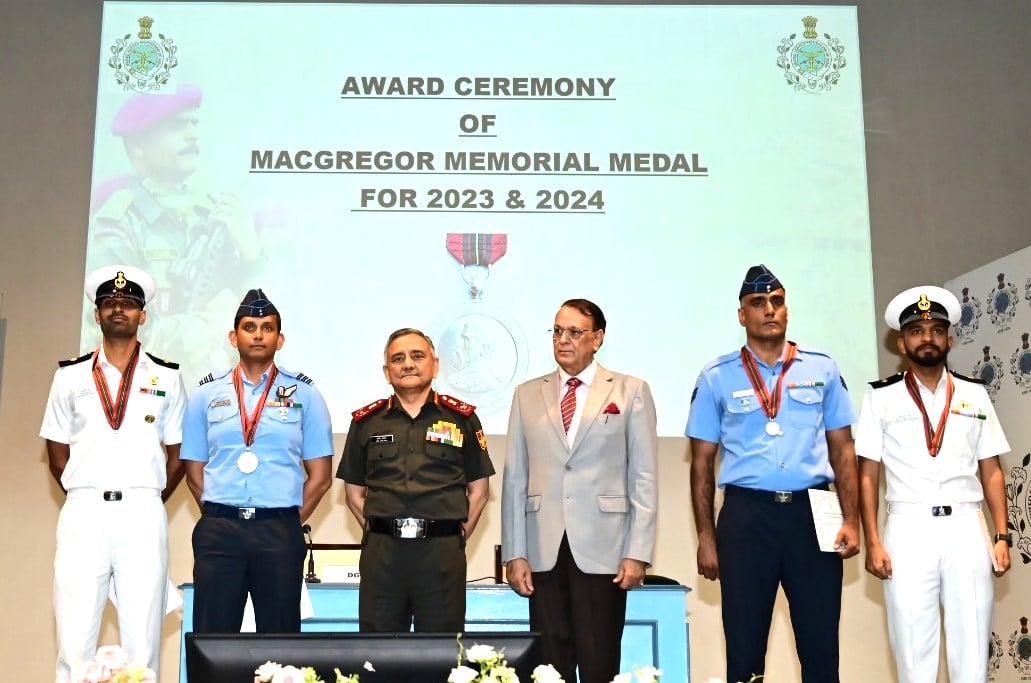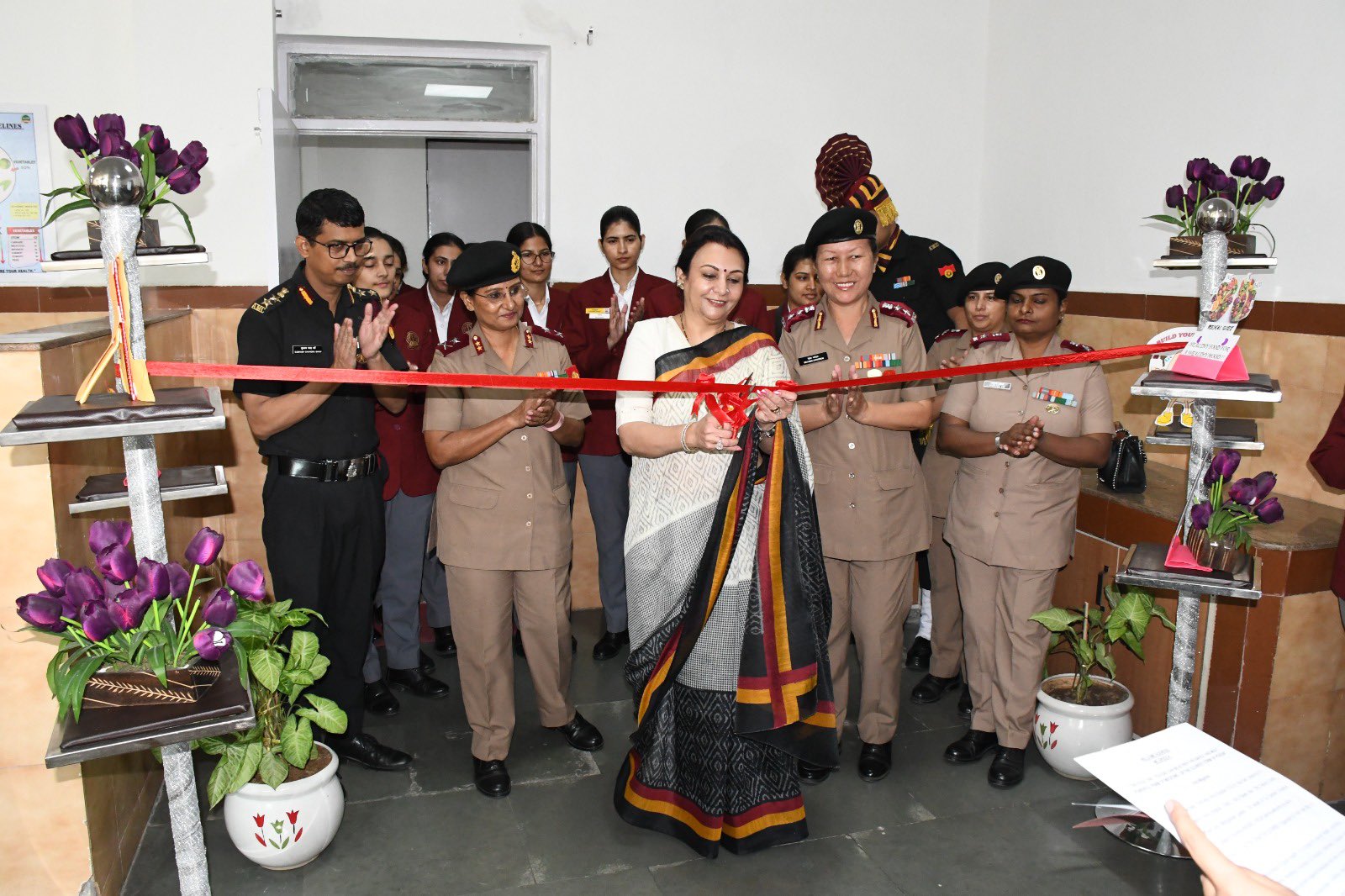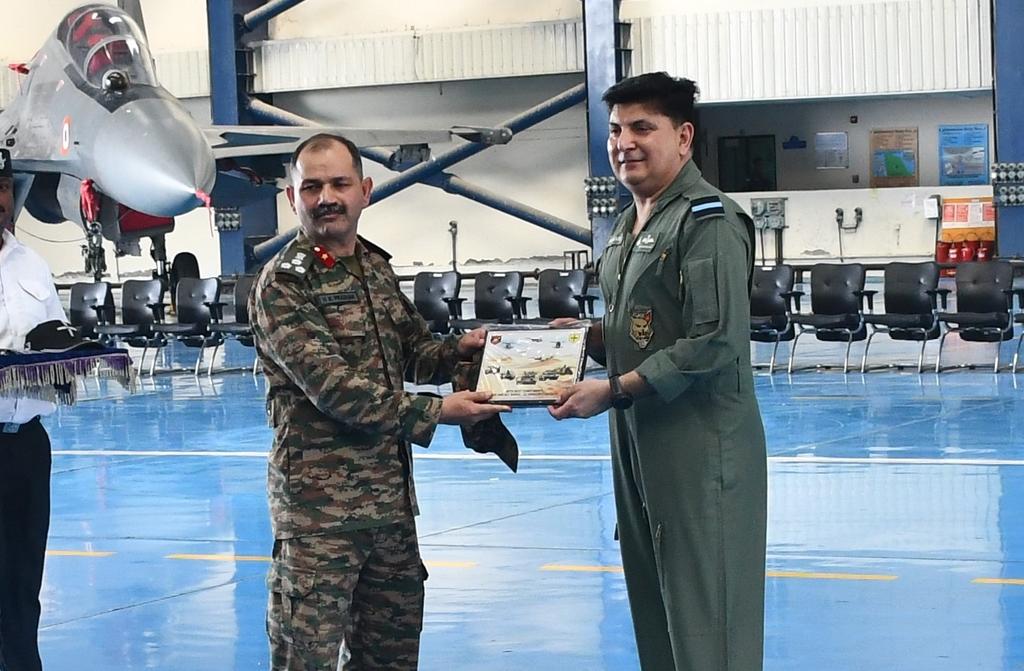At a Defence Summit organized by a private media organization, Minister of Defence Shri Rajnath Singh outlined the government’s steadfast commitment to long-term gains, emphasizing a strategic shift towards building a developed India by 2047 under the leadership of Prime Minister Shri Narendra Modi.
Addressing the gathering, Shri Rajnath Singh delineated the key departure of the present administration from past practices, citing a focus on policies aimed at yielding enduring benefits rather than short-term gains limited to electoral cycles.
The Defence Minister underscored the importance of prioritizing long-termism, identifying it as a hallmark of the current government’s approach to governance.
In his address, Shri Rajnath Singh highlighted several pivotal reforms implemented in the defence sector, aimed at fostering long-term growth and self-reliance.
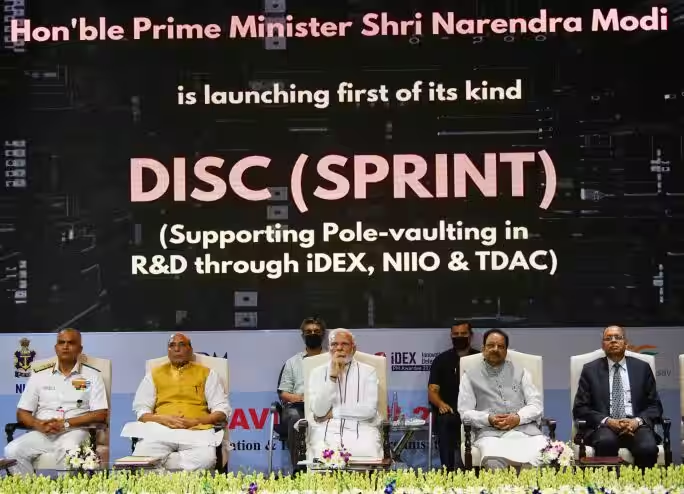
These reforms include the establishment of the post of Chief of Defence Staff and the creation of the Department of Military Affairs, which have significantly enhanced jointness, synergy, and coordination among the Indian Army, Navy, and Air Force.
Moreover, the Raksha Mantri emphasized the imperative of integrating the three Services to ensure seamless coordination during times of crisis, noting a departure from past practices where the Services operated in silos. He praised the strides made in this regard, citing enhanced military readiness and coordination as a testament to the efficacy of these reforms.
Highlighting advancements in defence manufacturing, Shri Rajnath Singh lauded the notification of indigenisation lists aimed at bolstering domestic production of weaponry and platforms.
The government’s decision to allocate 75% of the capital acquisition budget for procurement from local companies reflects its commitment to promoting indigenous innovation and self-reliance in defence production.
The Defence Minister debunked notions questioning the quality of indigenous weapons, expressing confidence in the capabilities of the domestic industry to deliver world-class products.
He emphasized that the ban on arms imports, initially perceived as a short-term challenge, has now emerged as an opportunity for India to assert itself as a burgeoning force in the global defence industrial landscape.
Further underlining the government’s commitment to self-reliance, Shri Rajnath Singh highlighted the burgeoning defence exports, with India poised to emerge as a major arms exporter. He attributed this transformation to the government’s steadfast support for both established defence conglomerates and burgeoning start-ups, heralding a new era of innovation and competitiveness in the defence sector.
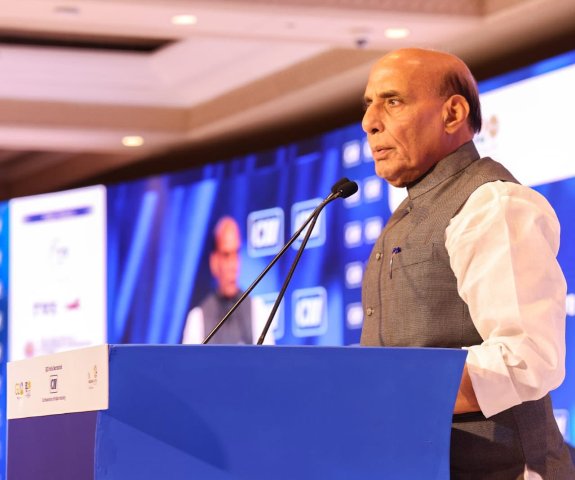
In addition to defence, the Defence Minister outlined the government’s long-term vision for holistic national development, encompassing initiatives in infrastructure, social welfare, and gender equality.
He lauded the government’s efforts in providing equal opportunities for women across various sectors, including the Armed Forces, underscoring their growing role and contribution to national security.
Shri Rajnath Singh’s address resonated with a resolute commitment to realizing India’s potential as a global powerhouse, with a clear focus on sustained progress and development.
As the nation embarks on this transformative journey, the government’s emphasis on long-term gains stands as a testament to its unwavering dedication to building a prosperous and secure future for all citizens.




